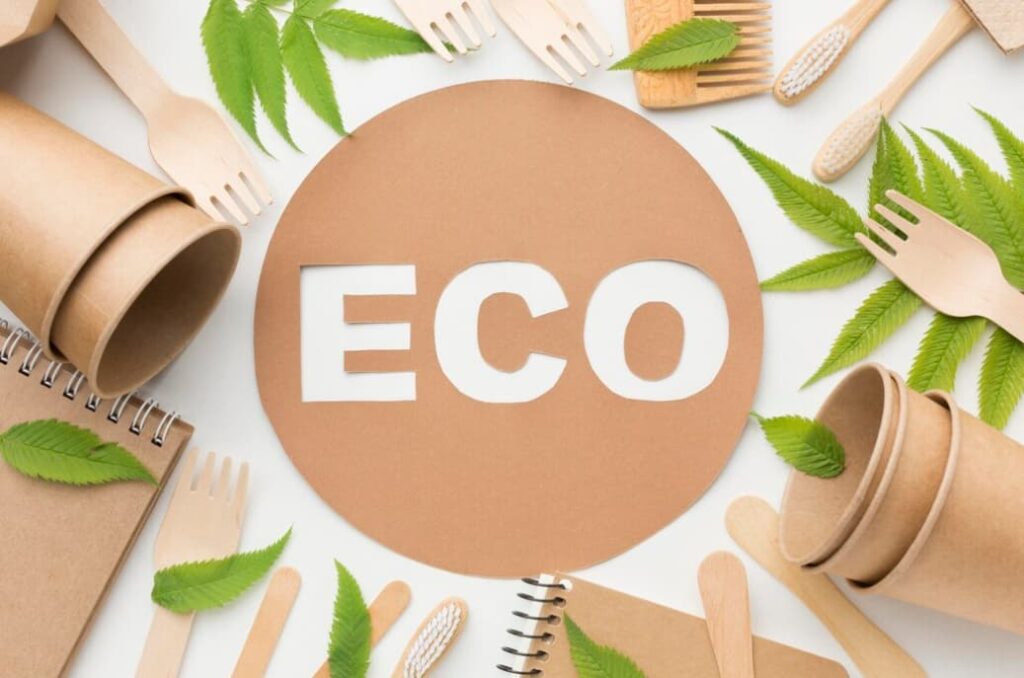Environmentally sustainable refers to products designed with the well-being of the ecosystem in mind. These items are crafted to minimize environmental impact throughout their lifecycle, from production to disposal, thereby reducing pollution of air, water, and soil.
Determining the Eco-Friendliness of an Item
Discerning the eco-friendliness of a product can often be confirmed by official certifications or eco-labels from reputable organizations. For personal evaluation, consider products that are biodegradable, free from plastics and aerosols, and designed for reuse. These characteristics are hallmarks of environmentally responsible products.
Understanding Sustainable Goods
Eco-friendly products are items designed with the environment in mind, from production to disposal. They are crafted to minimize their environmental footprint by utilizing sustainable materials, reducing waste, conserving natural resources, and avoiding harmful chemicals. These products often come from processes that require less energy, produce fewer greenhouse gases, and support recycling and conservation efforts. The intent behind eco-friendly products is to provide consumers with options that align with the principles of ecological balance, ethical responsibility, and long-term sustainability, thereby contributing to the health of the planet and its inhabitants.
Why Opting for Green Products is Beneficial
The urgency to adopt eco-friendly products cannot be overstated at a time when the world is witnessing rampant depletion of natural resources. With the planet under considerable strain from overuse and pollution, turning to eco-friendly options can alleviate the stress on our natural environment.
1. You Help Save Nature
The relentless overuse, contamination, and devastation of our natural resources disrupt the delicate balance of the environment. As integral components of the natural world, it is imperative that we pivot to eco-friendly alternatives to avert the further degradation of nature.
2. Protecting Human Well-being
The intricate web of interdependence that connects all life means that damage to any aspect of nature invariably impacts humanity. The emergence of new diseases and societal health issues can often be traced back to unsustainable production practices and careless waste disposal. By embracing eco-friendly products, we not only preserve the environment but also safeguard human health against the repercussions of environmental degradation.
3. Enhancing Climate Stability
The reality of climate change is undeniable, with its pace alarmingly accelerated in recent times. We are witnessing unprecedented temperature fluctuations leading to widespread implications for health, agriculture, polar ice integrity, and biodiversity. Adopting eco-friendly products is a crucial step towards mitigating these impacts. It can lead to the stabilization of our planet’s climate, fostering a healthier and more resilient environment for current and future generations.
4. Enhanced Wellbeing and Longevity
Utilizing products derived from natural sources promotes a life free from the adverse effects of synthetic chemicals. By choosing eco-friendly alternatives, one not only advocates for the broader health of the ecosystem but also opts for a purer, less hazardous existence. This approach significantly reduces exposure to harmful substances, potentially increasing overall health and longevity.
5. Economic Sustainability
Sustainable products leverage renewable resources, which frequently leads to long-term cost savings compared to conventional options that rely on finite, artificial inputs. The initial investment in eco-friendly items often pays dividends over time, both in reduced expenses and in the conservation of the planet’s resources, leading to a cycle of continued economic and environmental benefits.
Types of Eco-friendly Products

Eco-friendly products span a diverse range, each designed to reduce environmental impact and promote sustainability. These include biodegradable materials which break down naturally without harming the ecosystem, and reusable items that minimize waste by replacing disposable alternatives. Organic products, free from synthetic chemicals, support healthy living and soil conservation. Energy-efficient appliances and solar-powered devices reduce reliance on fossil fuels, mitigating climate change. Additionally, products made from recycled materials close the loop on resource use, exemplifying the principles of a circular economy. Each type of eco-friendly product plays a crucial role in crafting a more sustainable future.
- Sustainable Travel Essentials: Eco-conscious travel essentials are pivotal for reducing environmental footprints while on the move. Products like insulated stainless steel water bottles, biodegradable containers, and bamboo utensils offer sustainable alternatives to single-use plastics. Recycled or plant-based materials are also becoming popular for items like travel towels and toiletry bags, ensuring that your travel gear is as green as your destinations;
- Environmentally-Conscious Home Décor: Adorning your living space doesn’t have to come at an ecological cost. Eco-friendly home décor choices range from indoor plants that purify the air to wall accents made from reclaimed wood or natural fibers like jute and hemp. Sustainable furniture crafted from responsibly sourced materials and upcycled decorations not only add aesthetic value but also promote a healthy, toxin-free home environment;
- Multi-Use Carry Solutions: The shift towards long-lasting carry solutions has introduced a variety of reusable bags made from materials like organic cotton, hemp, or recycled polyethylene terephthalate (rPET). These durable alternatives to plastic shopping bags not only withstand the test of time but also encourage a cycle of reuse, significantly cutting down on plastic waste that threatens marine life and contributes to landfill overflow;
- Earth-Conscious Menstrual Solutions: The personal care industry is witnessing a sustainable revolution with the introduction of eco-friendly menstrual products. Options like silicone menstrual cups, organic cotton pads, and cloth liners offer a reusable, cost-effective alternative to traditional disposables, which are significant contributors to non-biodegradable waste;
- Green Office Supplies: In a move away from conventional plastics, there is an increasing availability of eco-friendly stationery made from recycled materials, bamboo, metal, or sustainably harvested wood. From biodegradable pens to recycled paper notebooks, these products help reduce environmental impact and foster a culture of sustainability in educational and professional settings;
- Sustainable Kitchenware: Transitioning to eco-friendly kitchenware can significantly reduce one’s ecological footprint. Choosing aluminum foil over plastic cling film for food storage, or opting for glass and stainless steel containers instead of plastic, can help decrease plastic waste. Moreover, utilizing biodegradable dishwashing brushes and reusable beeswax wraps are practical steps toward a greener kitchen.
The Role of Eco-Friendly Products in Earth’s Preservation

As our planet grapples with the ever-increasing burden of pollution and environmental degradation, the adoption of eco-friendly products offers a beacon of hope. These sustainably sourced and produced items are powered by renewable energy sources, which are inherently clean and abundant, ensuring minimal environmental impact.
The switch to eco-conscious commodities is a critical move in mitigating pollution levels, potentially reversing environmental damage accrued over time. They play a pivotal role in minimizing waste, as they are often designed with reusability and recyclability in mind, thwarting the planet’s transformation into a vast wasteland.
Broadening our commitment to green products also catalyzes the development of a circular economy, where the lifecycle of materials is extended, and the concept of waste is redefined. Ultimately, the embrace of eco-friendly products is not just a lifestyle choice but a collective step towards safeguarding and revitalizing our world for current and future generations.
Conclusion
In conclusion, the embrace of eco-friendly products represents more than a consumer trend; it is a conscious commitment to the longevity of our planet and the well-being of its inhabitants. By choosing products that are gentle on the environment and designed with sustainable practices, each of us contributes to a larger movement towards a more balanced and thriving ecosystem. Whether through the goods we use daily, the items we travel with, or the way we furnish our homes, these choices collectively foster a culture of responsibility and conservation. It is through such individual actions that we can hope to forge a path of ecological stewardship, ensuring that the Earth remains a vibrant and nourishing home for generations to come. You might be interested in: Green Your Routine: 18 Eco Swaps for Plastic.